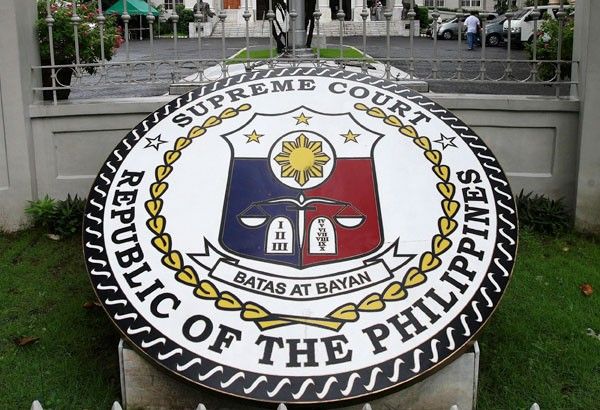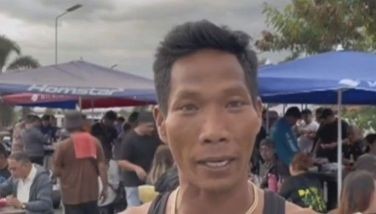Lawyer disbarred for faking court decision

MANILA, Philippines — The Supreme Court has disbarred a private lawyer for faking a court decision on a petition for marriage annulment.
In a statement on Friday, the SC Public Information Office said that Dionisio Apoya Jr. has been disbarred for faking a decision to “deceive” his client and complainant Leah Taday. Apoya made it appear like the court ruled in his client’s favor.
Apoya was found guilty of violating the Rule 1.01 and 1.02 of the Code of Professional Responsibility. The said provisions mandate a lawyer to "not engage in unlawful, dishonest, immoral or deceitful conduct” and “not counsel or abet activities aimed at defiance of the law or at lessening confidence in the legal system.”
The case stemmed from 2011, when Taday, an overseas Filipino worker, sought for Apoya’s legal services for the nullification of her marriage.
Apoya then drafted a Petition for Annulment of Marriage, notarized it, then filed before the Caloocan City Regional Trial Court Branch 131.
On Nov. 17, 2011, Apoya gave a copy of a court decision dated Nov. 16, 2011 to Taday who was then in the Philippines for a vacation. The purported decision, penned by a certain Judge Ma. Eliza Becamon-Angeles of RTC Branch 162, granted Taday’s plea for annulment.
But the complainant grew suspicious of the “poorly crafted” decision that was also released “too soon.” Taday verified the ruling and found out that Angeles and Branch 162 do not exist.
Taday, through her parents, sought for the withdrawal of Apoya as her counsel, but the lawyer filed a petition to withdraw Taday’s petition, which RTC Branch 131 had granted.
The complainant sought for a different legal counsel who called on Apoya’s attention on the legal fees and purported fake decision. But Apoya “denied delivering the assailed decision nor filing an urgent motion to withdraw the petition.”
“He said that he merely drafted the said motion and gave the same to complainant’s parents but never signed it,” the SC noted.
“[R]espondent committed unlawful, dishonest, immoral and deceitful conduct, and lessened the confidence of the public in the legal system. Instead of being an advocate of justice, he became a perpetrator of injustice. His reprehensible acts do not merit him to remain the rolls of the legal profession. Thus, the ultimate penalty of disbarment must be imposed upon him,” the court said.
The tribunal also found Apoya guilty of violating Section 2, Rule IV of the 2004 Rules of Notarial Practice for notarizing the verification and certification of non-forum shopping of the annual plea without the presence of his client.
- Latest
- Trending
























